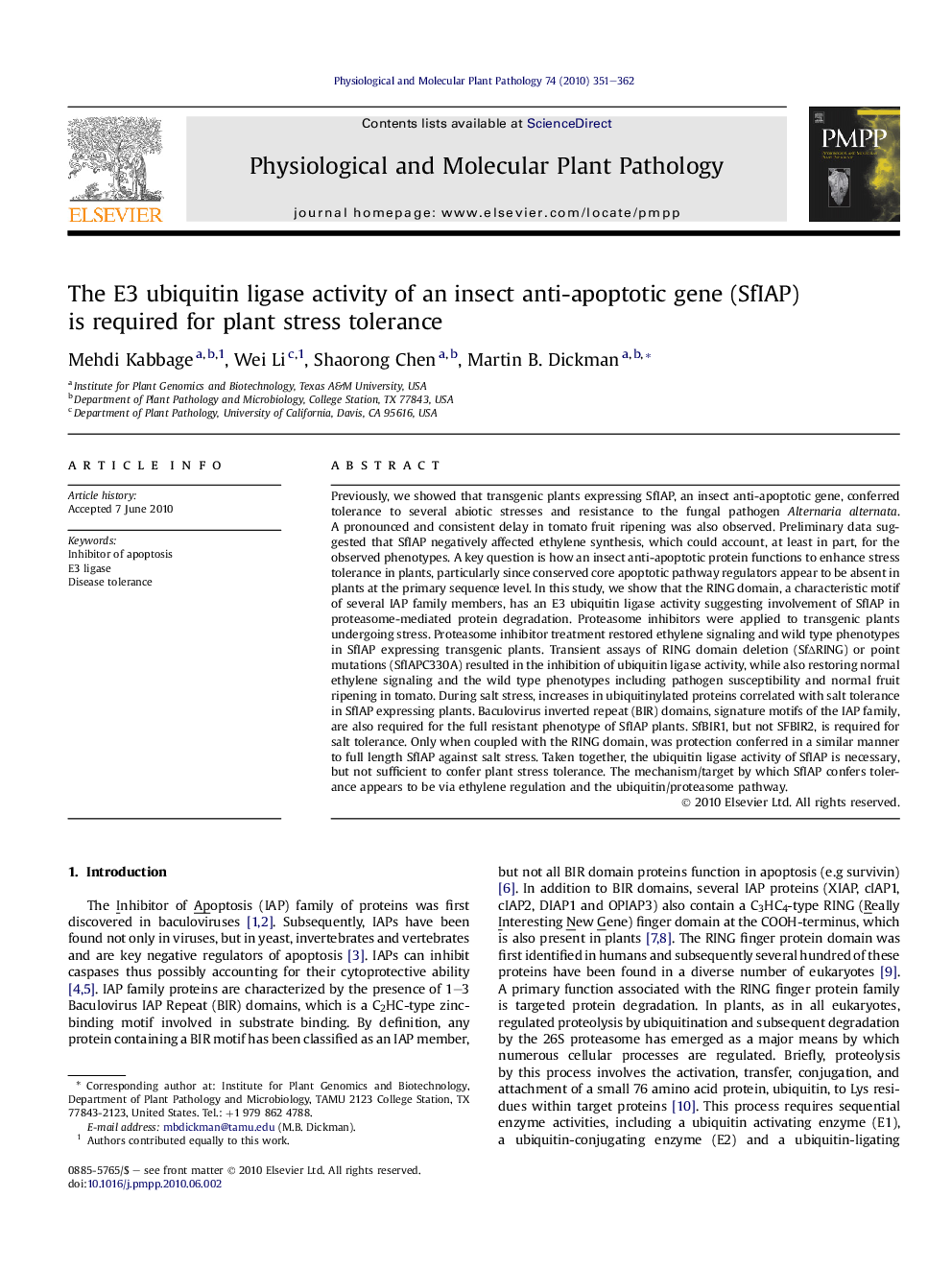| Article ID | Journal | Published Year | Pages | File Type |
|---|---|---|---|---|
| 2836502 | Physiological and Molecular Plant Pathology | 2010 | 12 Pages |
Previously, we showed that transgenic plants expressing SfIAP, an insect anti-apoptotic gene, conferred tolerance to several abiotic stresses and resistance to the fungal pathogen Alternaria alternata. A pronounced and consistent delay in tomato fruit ripening was also observed. Preliminary data suggested that SfIAP negatively affected ethylene synthesis, which could account, at least in part, for the observed phenotypes. A key question is how an insect anti-apoptotic protein functions to enhance stress tolerance in plants, particularly since conserved core apoptotic pathway regulators appear to be absent in plants at the primary sequence level. In this study, we show that the RING domain, a characteristic motif of several IAP family members, has an E3 ubiquitin ligase activity suggesting involvement of SfIAP in proteasome-mediated protein degradation. Proteasome inhibitors were applied to transgenic plants undergoing stress. Proteasome inhibitor treatment restored ethylene signaling and wild type phenotypes in SfIAP expressing transgenic plants. Transient assays of RING domain deletion (Sf∆RING) or point mutations (SfIAPC330A) resulted in the inhibition of ubiquitin ligase activity, while also restoring normal ethylene signaling and the wild type phenotypes including pathogen susceptibility and normal fruit ripening in tomato. During salt stress, increases in ubiquitinylated proteins correlated with salt tolerance in SfIAP expressing plants. Baculovirus inverted repeat (BIR) domains, signature motifs of the IAP family, are also required for the full resistant phenotype of SfIAP plants. SfBIR1, but not SFBIR2, is required for salt tolerance. Only when coupled with the RING domain, was protection conferred in a similar manner to full length SfIAP against salt stress. Taken together, the ubiquitin ligase activity of SfIAP is necessary, but not sufficient to confer plant stress tolerance. The mechanism/target by which SfIAP confers tolerance appears to be via ethylene regulation and the ubiquitin/proteasome pathway.
